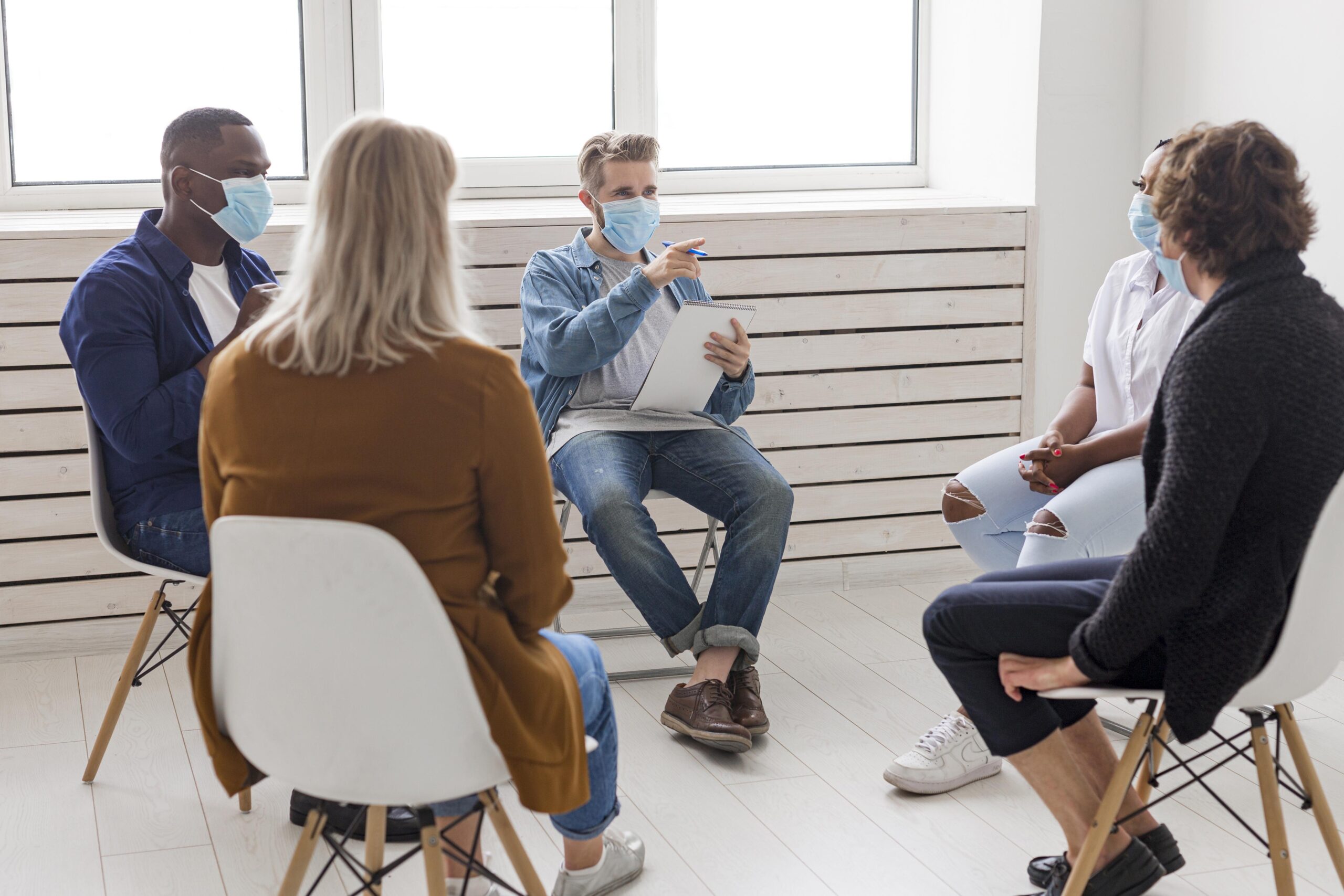Group therapy is an effective therapeutic approach that brings individuals together to share experiences, provide support, and learn from one another. At Oroville Drug Treatment Center, we recognize the importance of understanding the various types of group therapy available, as each serves different needs and goals. In this blog, we will explore the main types of group therapy and how they can benefit individuals on their journey to recovery.
1. Psychoeducational Groups
Overview
Psychoeducational groups focus on providing information and education about specific issues, such as mental health conditions, addiction, or coping strategies. These groups aim to empower participants with knowledge that can aid in their recovery process.
Key Features
- Information Sharing: Participants learn about the nature of their challenges, treatment options, and coping strategies.
- Skill Development: Groups often include skill-building exercises, such as stress management or communication techniques.
- Supportive Environment: While educational, these groups also foster a sense of community among participants.
Benefits
- Increases awareness and understanding of mental health or addiction issues.
- Helps individuals develop practical skills to manage their symptoms.
2. Process-Oriented Groups
Overview
Process-oriented groups focus on the interpersonal dynamics between members and the interactions that occur within the group. These sessions encourage participants to explore their feelings and experiences in relation to others.
Key Features
- Emotional Exploration: Members share personal experiences, feelings, and thoughts, often leading to deeper self-awareness.
- Feedback and Support: Participants provide feedback to each other, fostering empathy and understanding.
- Facilitated Discussions: A therapist or facilitator guides discussions, helping members navigate interpersonal challenges.
Benefits
- Enhances emotional intelligence and communication skills.
- Promotes personal growth through shared experiences and feedback.
3. Support Groups
Overview
Support groups are informal gatherings of individuals facing similar challenges, such as addiction, grief, or chronic illness. These groups focus primarily on providing emotional support and encouragement.
Key Features
- Peer Support: Members share their experiences and offer support to one another.
- Safe Space: A non-judgmental environment allows individuals to express their feelings openly.
- Shared Goals: Participants often have common goals, such as maintaining sobriety or coping with loss.
Benefits
- Reduces feelings of isolation and loneliness.
- Provides encouragement and motivation to pursue recovery goals.
4. Cognitive-Behavioral Therapy (CBT) Groups
Overview
CBT groups utilize principles of cognitive-behavioral therapy to help participants identify and change negative thought patterns and behaviors. These structured sessions focus on skill-building and problem-solving.
Key Features
- Structured Format: Sessions follow a specific agenda, often including homework assignments.
- Skill Acquisition: Participants learn cognitive and behavioral techniques to manage their symptoms.
- Goal-Oriented: Members work together to set and achieve personal goals.
Benefits
- Provides effective tools for managing anxiety, depression, and other mental health challenges.
- Encourages accountability through shared goals and progress tracking.
5. Trauma-Informed Groups
Overview
Trauma-informed groups focus on understanding and addressing the impact of trauma on individuals’ lives. These sessions create a safe and supportive environment for participants to explore their experiences and healing.
Key Features
- Safety First: The primary focus is on creating a safe environment for all members.
- Empowerment: Participants are encouraged to take an active role in their healing process.
- Understanding Trauma: Discussions often center around the effects of trauma and coping strategies.
Benefits
- Helps individuals process and heal from traumatic experiences.
- Fosters resilience and empowerment in participants.
Conclusion
There are various types of group therapy, each tailored to meet the unique needs of individuals seeking support and healing. Whether through psychoeducational groups, process-oriented sessions, support groups, cognitive-behavioral therapy groups, or trauma-informed approaches, group therapy offers a valuable resource for personal growth and recovery.
At Oroville Drug Treatment Center, we provide a range of group therapy options designed to support individuals on their path to healing. Our experienced therapists facilitate groups that foster connection, understanding, and empowerment. If you or a loved one is interested in exploring group therapy as part of your recovery journey, visit Oroville Drug Treatment Center to learn more about our services. Together, we can build a supportive community that fosters hope and healing.
